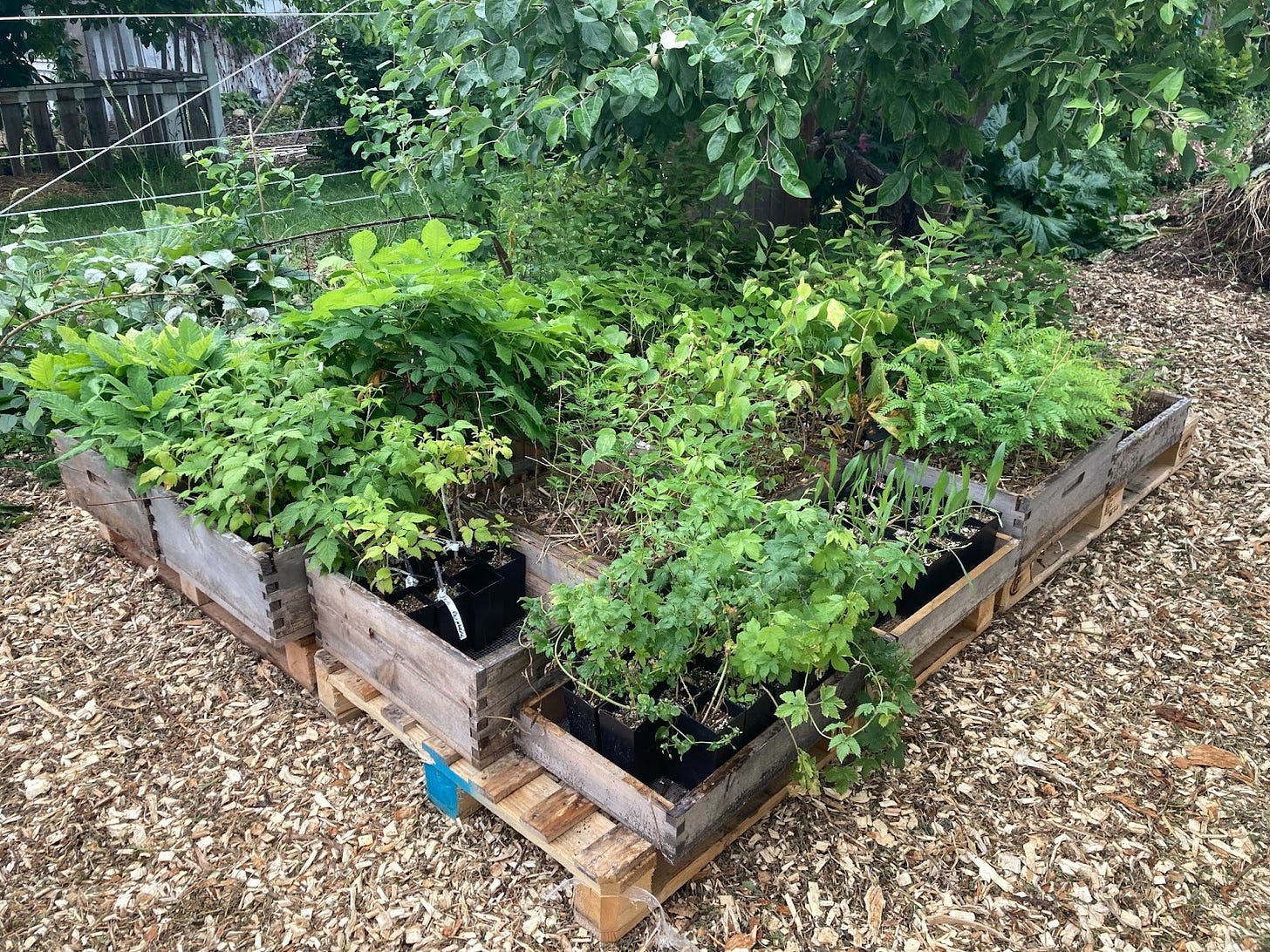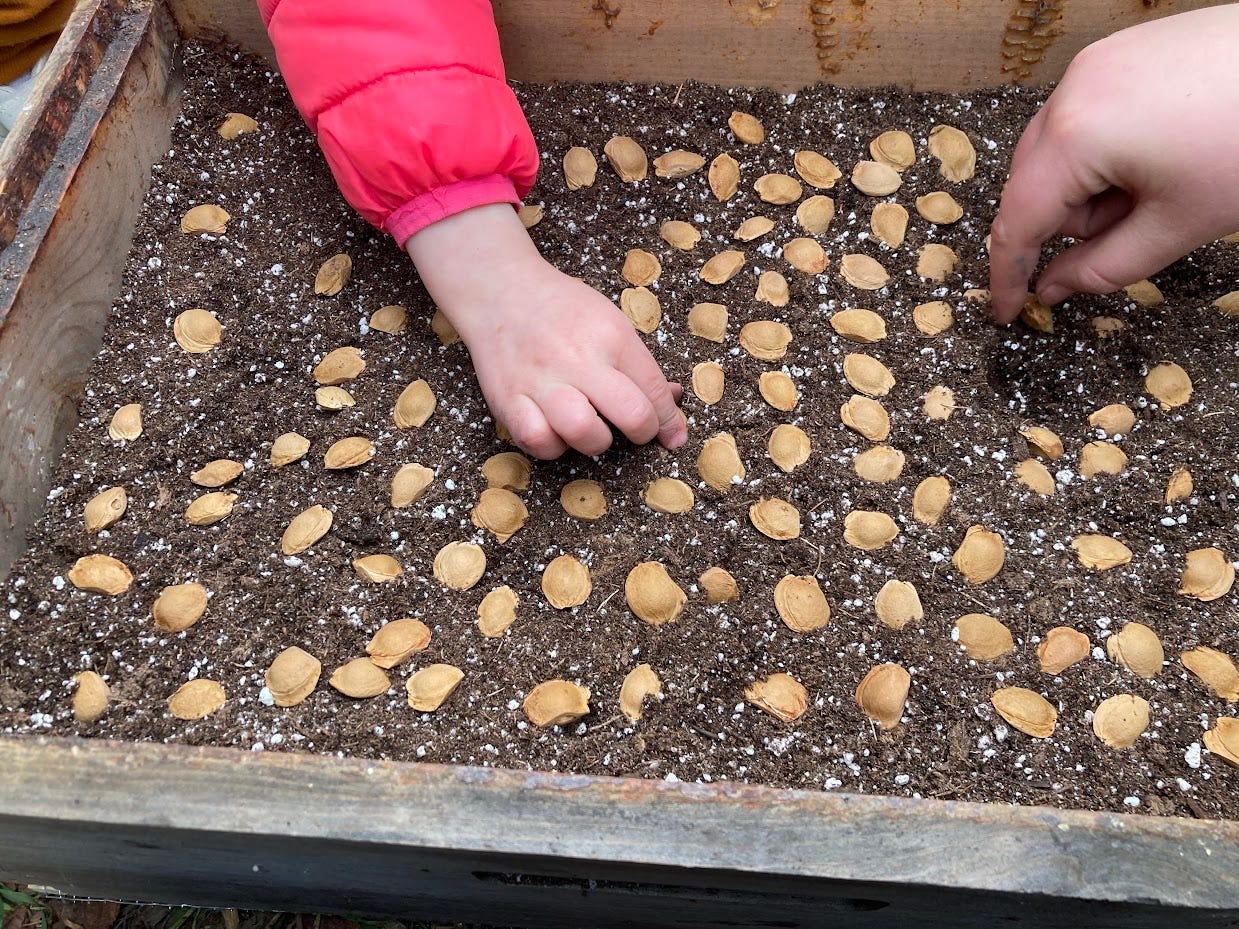Reductions in crime, lower home heating and cooling bills, and increased soil resiliency are among the many benefits that Dustin Bajer is bringing to his neighbourhood through Cultivate McCauley — a love letter to front gardens, back alleys, and everywhere in between.
With funding via Edmonton’s revitalization project macro-grant, Bajer has taken on the impressive challenge of raising 1,000 heritage and fruit-bearing trees in community mini nurseries before transplanting them into McCauley yards. In the spirit of community and longevity, workshops and mentorship will follow each step of the process, which is powered by volunteers willing to donate time, space, and care to these plants throughout their lifetime.

“This grant is a proof of concept,” Bajer says. “Anything we learn from this can be applied more broadly. It’s conceivable that we could take lessons from this project and apply that to growing hundreds or thousands of green plants in surrounding neighbourhoods like Alberta Avenue and Parkdale.”
Mini nurseries are dispersed in volunteer properties throughout the community. These nurseries will grow trees from seeds and cuttings during workshops. After plants reach six to 18 inches in height, they will be distributed to interested households to become permanent additions to yards, alleys, or anywhere they may grow and thrive.
2019 census data lists McCauley’s population at 4,738 residents, of which 78 per cent are renters. With just over 2,400 occupied dwellings, the goal of 1,000 trees highlights the need for volunteer support. With a thousand new trees, the project has the potential to be immense — especially when considering McCauley’s low canopy coverage despite the maturity of its boulevard trees. The need for biodiversity is further highlighted by Dutch elm disease, which can devastate even the largest and most established boulevard trees in Edmonton.
As for what volunteers can expect, their voices and yards will determine the final outcome. Seed kits include heritage and fruit-producing trees like apricots, walnuts, sweet cherries, and chestnuts. Others are more focused on shade or pollination. “It’s a very diverse group,” says Bajer, “and we hope to find the right plant for the right place and person.”
The powerful combination of plants, people, and community is well known to Bajer. As he approaches his fifth season of managing the permaculture team behind Shrubscriber, his experiences in grassroots gardening continue to show how viable rewilding efforts can be when communities are empowered and inspired. Put simply, he believes growing and planting a thousand new trees is an opportunity to engage and connect McCauley residents, businesses, and social agencies around a shared community project that improves the land in countless ways.
“In addition to the good this project will do, I look forward to learning about the logistics so that it can be repeatable and scalable. After all, I’m just one tree weirdo. It’s not hard for one tree weirdo to grow a thousand trees. But 100 tree weirdos growing 1,000 trees a year? Now we’re talking about something incredible.”
Volunteers and interested households are encouraged to visit the Cultivate McCauley website and click “Get Involved” to hear about upcoming opportunities.






Nice Story!
Upcoming event March 11 7pm To 9pm
Trees in McCauley: The Past and Future of McCauley’s Urban Forest (& Seed Swap)
Paper Birch Books, 10825 95 St